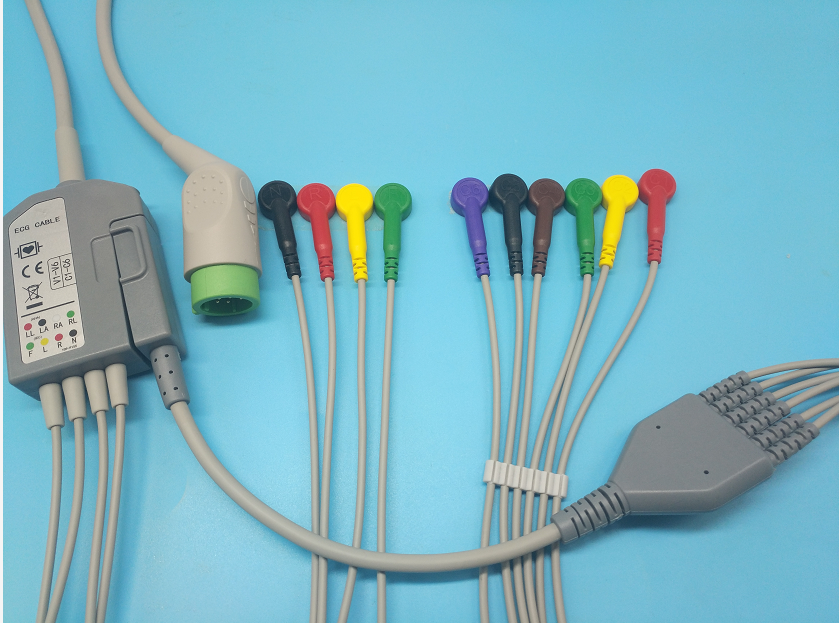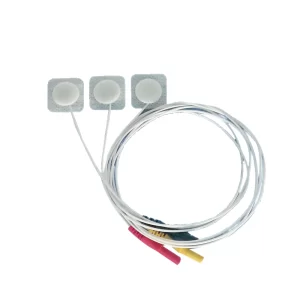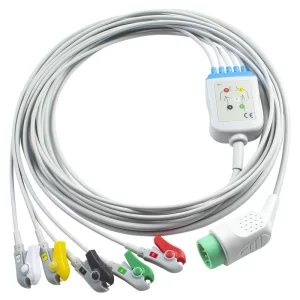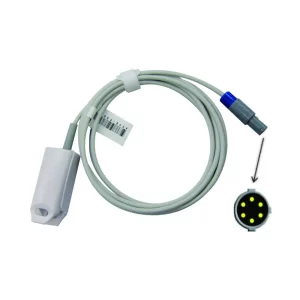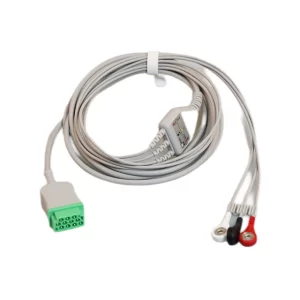In the world of fast-paced medicine, ECG cables are often neglected in favour of patient care. Neglecting these components can have a significant impact on the accuracy of readings as well as patient outcomes.
Introduce yourself
Clean ECG cables are not only aesthetically pleasing, but they also influence the accuracy of the readings. Imagine a situation where the ECG signals are faulty at a critical time in a patient’s health assessment. It is crucial to understand why clean ECG cables are important in order to avoid these scenarios.
Why Clean ECG Cables Are Important
ECG cables with dirt can cause a signal to be compromised, resulting in a misinterpretation. Cables can become dirty, which will interfere with the transmission of electrical impulses. This article will walk you through the steps to clean your ECG cable for accurate readings.
ECG Cable Cleaning Guide: Step-by step guide
Gather the necessary tools before starting to clean. These include soft brushes and mild cleaning solutions. Also, lint-free towels are a must. Choose materials that will not damage the cables.
It’s important to know the ECG cable structure in order to clean them properly. ECG cables typically consist of conductive components, insulating materials, and connectors. The cable’s performance can be affected by dirt in each part.
Now, let’s get hands-on. Follow these steps to achieve a thorough, effective cleaning.
- Prepare Workspace: First, ensure that your workspace is organized and clean.
- Disconnecting the Cables: Carefully disconnect the ECG cable from the machine.
- Remove Visible Debris Use the soft brush to remove dirt or debris that is visible.
- Clean with Cleaning Solution: Dampen the cloth with a mild cleaner and gently wipe over the cables.
- Inspect Cables for Damage: While you are cleaning, inspect cables for any signs or wear and tear.
- Allow Cables to Dry Completely: Allow all cables to dry thoroughly before reconnecting to ECG Machine.
What is routine cleaning of EKG cables?
A daily visual inspection is required for routine cleaning of EKG cables to identify visible dirt and damage. The patient’s contact points, such as lead connectors and electrodes should be cleaned with mild EKG-safe cleaning products. Regular checks on connector integrity and removal of adhesive are important steps. The cable connection must be secured and excessive moisture should not be allowed to accumulate during cleaning. Regular electrode rotation and documentation daily cleaning activities also contribute to optimal EKG cable performance.
How many times should I clean my ECG machine?
How often you clean your ECG machine is dependent on a variety of factors. Daily wiping down of all external surfaces is recommended, including touchscreens and buttons. A weekly deep cleaning of external surfaces and connectors is recommended. Monthly maintenance involves cleaning vents with compressed air, inspecting the internal components, and removing dust. Following the manufacturer’s instructions, professional maintenance ensures that internal checks are performed, as well as software updates and calibration. Cleaning schedules are influenced by environmental factors like dust and humidity.
Cleaning ECG cables is essential to accurate diagnosis. Maintaining your equipment regularly will ensure it performs optimally, which can lead to better patient care.
FAQs regarding Cleaning ECG Cables
- How many times should I clean my ECG cable?
- Cleaning frequency depends upon usage and environmental factors. A monthly cleaning is an excellent starting point.
- Is it possible to use any cleaning product for ECG cable?
- To avoid damaging your medical equipment, you should only use mild cleaning agents approved by the manufacturer.
- Can I tell if the cables in my house need to be cleaned by looking for certain signs?
- Cleaning is required if you have erratic readings and signal interruptions.
- How should I proceed if I have difficulties with the cleaning process?
- Consult the following troubleshooting tips if you are still experiencing problems.
- Can I clean my cables by myself or do I need professional cleaning?
- Both options can be used. Select based on your budget and equipment requirements, as well as your preferences.

